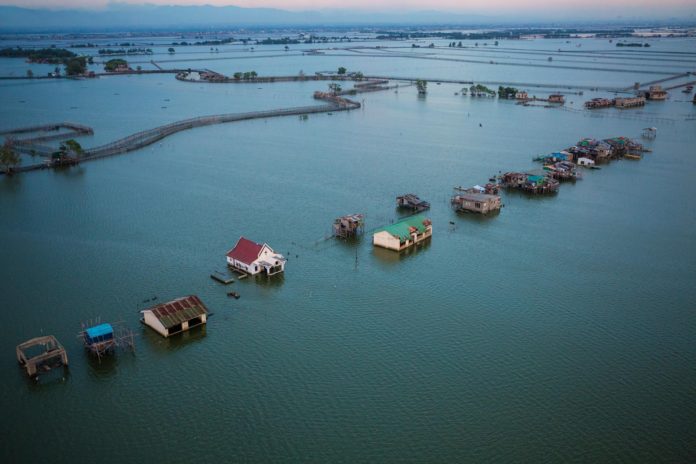This is Scott Amyx with today’s Climate Change Flash Briefing.
According to a research published in the journal Nature, Greenland’s ice sheet is melting faster than in the last 350 years and driving sea levels up around the world. The authors of the study found a 50 percent increase in total ice sheet meltwater runoff vs. the start of the industrial era, and a 30 percent increase since the 20th century.
In July 2012, it was so hot in the Arctic that nearly the entire surface of the Greenland ice sheet turned to slush. Scientists have concluded that the hot 2012 summer capped off 20 years of unprecedented increases in meltwater runoff from Greenland. And the melting is speeding up even faster than air temperatures warm. A complete melting of Greenland’s mile-thick ice sheets would dump seven meters or 23 feet of extra water into the world’s ocean.
The contributing factors to sea level rise are thermal expansion of the oceans, melting of temperate glaciers, Greenland, and Antarctica. The sea level will not rise uniformly everywhere on Earth. However, coastal and island regions will experience widespread coastal flooding. Further effects are higher storm-surges and more dangerous tsunamis and hurricanes, displacement of populations, loss and degradation of land and damage to coastal cities.
Stay tuned next time to learn about the findings from the Fourth National Climate Assessment.


















